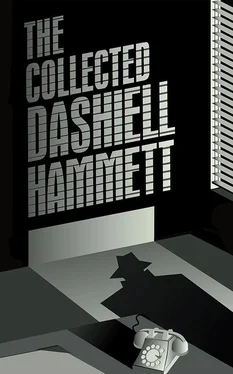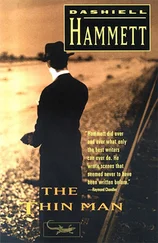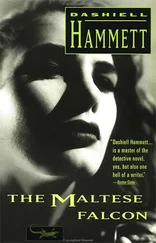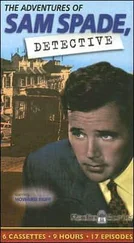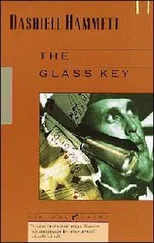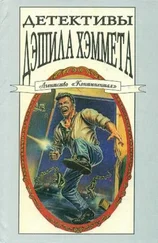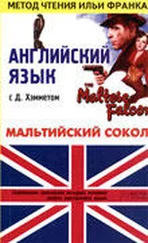He held out a sheet of notepaper to Phil. In a small, firm, regular handwriting, but thickly besmeared with blood, was written:
My dear Romaine—
Leaving you, I want to extend to both you and your new-found champion my heartiest wish that joy and happiness attend you.
My only regret is that so little of your heritage remains — but I was always careless with money! I advise you to cling to Mr. Truax — never have I seen a more promising young man. And he has at least three hundred and fifty dollars!
There is much that I would write, hut my strength is going and I fear that my pen will waver. And I who have never shown a sign of weakness in my life am vain enough to desire that I leave this gentle world with that record intact.
Affectionately,
UNCLE BORIS.
The Man Who Killed Dan Odams
Black Mask, January 15, 1924
When the light that came through the barred square foot of the cell’s one high window had dwindled until he could no longer clearly make out the symbols and initials his predecessors had scratched and penciled on the opposite wall, the man who had killed Dan Odams got up from the cot and went to the steel-slatted door.
“Hey, chief!” he called, his voice rumbling within the narrow walls.
A chair scraped across a floor in the front of the building, deliberate footsteps approached, and the marshal of Jingo came into the passage between his office and the cell.
“I got something I want to tell you,” the man in the cell said.
Then the marshal was near enough to see in the dim light the shiny muzzle of a short, heavy revolver threatening him from just in front of the prisoner’s right hip.
Without waiting for the time-honored order the marshal raised his hands until their palms were level with his ears.
The man behind the bars spoke in a curt whisper.
“Turn around! Push your back against the door!”
When the marshal’s back pressed against the bars a hand came up under his left armpit, pulled aside his unbuttoned vest, and plucked his revolver from its holster. “Now unlock this here door!”
The prisoner’s own weapon had disappeared and the captured one had taken its place. The marshal turned around, lowered one hand, keys jingled in it, and the cell door swung open.
The prisoner backed across the cell, inviting the other in with a beckoning flip of the gun in his hand. “Flop on the bunk, face-down.”
In silence the marshal obeyed. The man who had killed Dan Odams bent over him. The long black revolver swept down in a swift arc that ended at the base of the prone official’s head.
His legs jerked once, and he lay still.
With unhurried deftness the prisoner’s fingers explored the other’s pockets, appropriating money, tobacco, and cigarette papers. He removed the holster from the marshal’s shoulder and adjusted it to his own. He locked the cell door behind him when he left.
The marshal’s office was unoccupied. Its desk gave up two sacks of tobacco, matches, an automatic pistol, and a double handful of cartridges. The wall yielded a hat that sat far down on the prisoner’s ears, and a too-tight, too-long, black rubber slicker.
Wearing them, he essayed the street.
The rain, after three days of uninterrupted sovereignty, had stopped for the time. But Jingo’s principal thoroughfare was deserted — Jingo ate between five and six in the evening.
His deep-set maroon eyes — their animality emphasized by the absence of lashes — scanned the four blocks of wooden-sidewalked street. A dozen automobiles were to be seen, but no horses.
At the first corner he left the street and half a block below turned into a muddy alley that paralleled it. Under a shed in the rear of a poolroom he found four horses, their saddles and bridles hanging near by. He selected a chunky, well-muscled roan — the race is not to the swift through the mud of Montana — saddled it, and led it to the end of the alley.
Then he climbed into the saddle and turned his back on the awakening lights of Jingo.
Presently he fumbled beneath the slicker and took from his hip pocket the weapon with which he had held up the marshal: a dummy pistol of molded soap, covered with tinfoil from cigarette packages. He tore off the wrapping, squeezed the soap into a shapeless handful, and threw it away.
The sky cleared after a while and the stars came out. He found that the road he was traveling led south. He rode all night, pushing the roan unrelentingly through the soft, viscid footing.
At daylight the horse could go no farther without rest. The man led it up a coulee — safely away from the road — and hobbled it beneath a clump of cottonwoods.
Then he climbed a hill and sprawled on the soggy ground, his lashless red eyes on the country through which he had come: rolling hills of black and green and gray, where wet soil, young grass, and dirty snow divided dominion — the triple rule trespassed here and there by the sepia ribbon of county road winding into and out of sight.
He saw no man while he lay there, but the landscape was too filled with the marks of man’s proximity to bring any feeling of security. Shoulder-high wire fencing edged the road, a footpath cut the side of a near-by hill, telephone poles held their short arms stiffly against the gray sky.
At noon he saddled the roan again and rode on along the coulee. Several miles up he came to a row of small poles bearing a line of telephone wire. He left the coulee bottom, found the ranch house to which the wire ran, circled it, and went on.
Late in the afternoon he was not so fortunate.
With lessening caution — he had seen no wires for more than an hour — he rode across a hill to stumble almost into the center of a cluster of buildings. Into the group, from the other side, ran a line of wire.
The man who had killed Dan Odams retreated, crossed to another hill, and as he dropped down, on the far side, a rifle snapped from the slope he had just quit.
He bent forward until his nose was deep in the roan’s mane, and worked upon the horse with hand and foot. The rifle snapped again.
He rolled clear of the horse as it fell, and continued to roll until bunch grass and sagebrush screened him from behind. Then he crawled straight away, rounded the flank of a hill, and went on.
The rifle did not snap again. He did not try to find it.
He turned from the south now, toward the west, his short, heavy legs pushing him on toward where Tiger Butte bulked against the leaden sky like a great crouching cat of black and green, with dirty white stripes where snow lay in coulee and fissure.
His left shoulder was numb for a while, and then the numbness was replaced by a searing ache. Blood trickled down his arm, staining his mud-caked hand. He stopped to open coat and shirt and readjust the bandage over the wound in his shoulder — the fall from the horse had broken it open and started it bleeding again. Then he went on.
The first road he came to bent up toward Tiger Butte. He followed it, plowing heavily through the sticky, clinging mud.
Only once did he break the silence he had maintained since his escape from the Jingo jail. He stopped in the middle of the road and stood with legs far apart, turned his bloodshot eyes from right to left and from ground to sky, and without emotion but with utter finality cursed the mud, the fence, the telephone wires, the man whose rifle had set him afoot, and the meadow larks whose taunting flutelike notes mocked him always from just ahead.
Then he went on, pausing after each few miles to scrape the ever-accumulating mud from his boots, using each hilltop to search the country behind for signs of pursuit.
The rain came down again, matting his thin, clay-plastered hair — his hat had gone with his mount. The ill-fitting slicker restricted his body and flapped about his ankles, impeding his progress, but his wounded shoulder needed its protection from the rain.
Читать дальше
